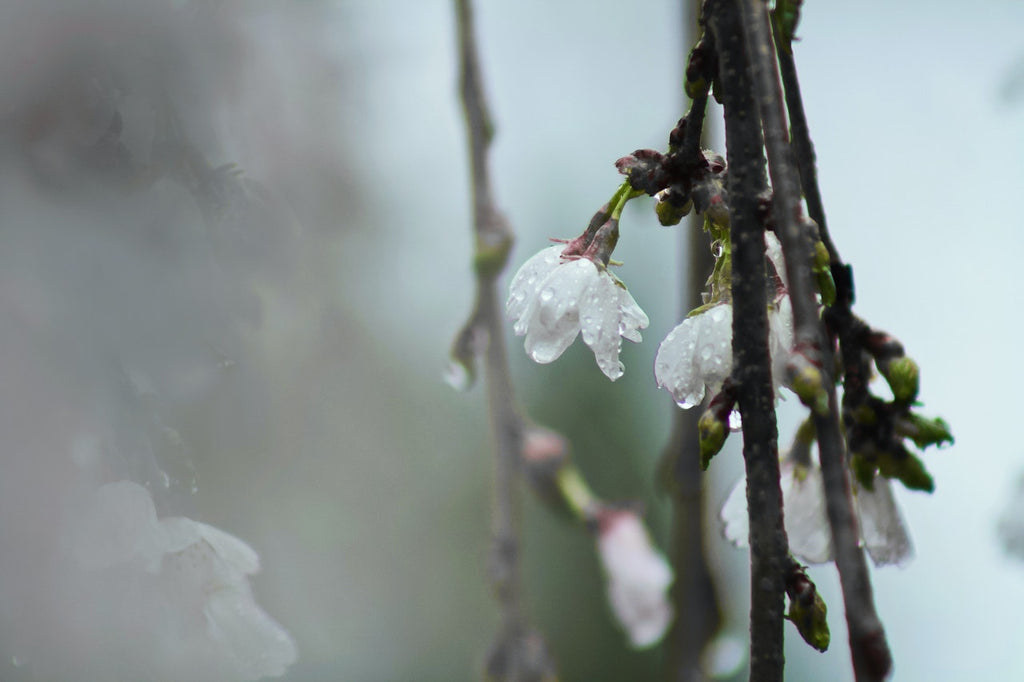4 tips for a cold season skincare routine
A seasonally appropriate skincare routine can help as the temperature drops and winter approaches.
While you may believe you can use the same products all year round, what keeps your face supple and smooth in the summer may not be able to hold up in the colder months.
We came up with 4 tips for a cold season routine to help maintain the natural health of your skin.
Avoid alcohol-based products
Sometimes alcohol based products can be drying and sensitizing for skin. It might strip your skin of moisture and dry out your skin over time. They are used in skincare in small percentage as penetration enhancer, which means it can be used to increase the transdermal delivery of certain ingredients into the skin.
Over time they can widen pores and create greasiness, we recommend avoiding products with any form of alcohol if you have oily skin, sensitive skin, or skin that is prone to acne.
This is not for all alcohols, the volatile alcohols are those that actually damage the skin's barrier.
Fatty alcohols, instead, could be beneficial for your skin.
If you want to avoid adverse reactions, be sure to double-check the ingredients label before adding a new product to your skincare routine and do a patch test before starting using it.
Be sure to hydrate well your skin
During the cold weather you may be tempted to take longer baths, this could result in a softening of the stratum corneum of your skin due to excessive hydration.
High humidity the same as low humidity weakens the barrier effect of the skin, which leads to moisture loss and dehydration.
Be aware of that and go heavy on moisturizers and not just on your face, your entire body needs it. A thicker moisturizer with hydrating ingredients like hyaluronic acid, glycerin or honey might help.
Published research: Dry skin conditions are related to the recovery rate of skin temperature after cold stress rather than to blood flow
Introduce facial oils and balms into your skincare routine
Facial oils and balms are occlusive agents that could do magic for dry and sensitive skin.
Occlusive agents work by physically blocking the loss of water from the skin.
These hydrophobic (water-hating) agents form a film on the skin that reduces Trans-Epidermal Water Loss (TEWL) by preventing evaporation of water from the stratum corneum.
These agents may also help to restore the lipid barrier of the skin. If you didn't incorporate facial oils in your skincare routine yet, you should start now.
Good quality organic facial oils are not greasy as many people might think. They work for all skin types, acne, dry, sensitive even oily skin.
Yes, they are good for oily skin too, because they help balance the level of sebum naturally created by your skin.
Check our LILIXIR Ageless Rejuvenating oil based serums and see how you can incorporate them in your skincare routine. Use them before you daily moisturizer for better results.
Don't forget the sunscreen! You need it all the time.
The sun helps people's health by facilitating the skin's own natural production of vitamin D and endorphins.
However, excessive UV exposure poses serious risks to the health of the skin, including pigmentary changes, wrinkling, and cancer. Dermatologists advise using UV protection all year round, every day, even in winter or on cloudy days.
Published Research: Human physiological responses to cold exposure
Sign up to our Newsletter for more tips like this and don't miss any future blog posts. Comment below if this was helpful!

